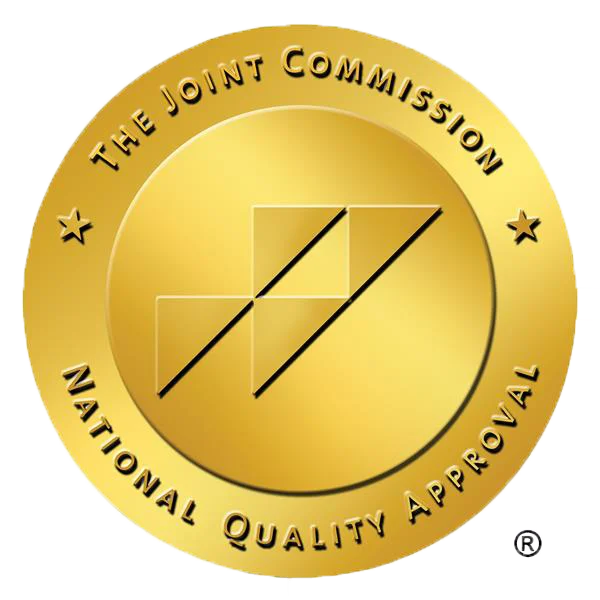Adderall is often prescribed for ADHD and narcolepsy, but its stimulant effects can lead to dependence when misused. If you or someone you love is struggling with Adderall use, detox is often the first and most important step toward lasting recovery. At Painted Grove Recovery in Louisville, KY, we provide medically supervised adderall detox that helps you stabilize safely, manage withdrawal symptoms, and begin the healing process with dignity.
Our team understands that recovery is about more than just getting through detox—it’s about building a foundation for real change. That’s why we offer compassionate, Medicaid-accepted care, 24/7 admissions, and transportation assistance, so help is never out of reach.
Start Adderall detox in a safe, supportive environment
Understanding Adderall dependence and withdrawal
What is Adderall dependence?
Adderall dependence occurs when your brain and body adapt to the medication, making it difficult to function without it. Over time, higher doses may be needed to feel the same effects, and stopping suddenly can trigger uncomfortable withdrawal symptoms. Dependence does not mean weakness—it means your body has built tolerance and needs support to reset safely.
Common Adderall detox symptoms
When someone stops using Adderall after prolonged use, withdrawal symptoms can set in quickly. These symptoms vary in intensity depending on how long and how much the drug has been used, but they often include:
- Extreme fatigue and low energy
- Depression or mood swings
- Intense cravings for Adderall
- Irritability or agitation
- Trouble concentrating
- Sleep changes (excessive sleeping or insomnia)
- Increased appetite
These symptoms can be overwhelming on your own, which is why medical detox offers both safety and comfort during this process.
Adderall detox timeline: What to expect
Adderall withdrawal does not look the same for everyone, but most people experience symptoms within hours to a day of their last dose.
- First 24–48 hours: Fatigue, depression, and strong cravings often begin
- Days two to five: Symptoms may intensify, with mood swings, sleep issues, and difficulty concentrating
- Week one to two: Many physical symptoms start to improve, but psychological symptoms like depression and cravings can persist
- Beyond two weeks: While most symptoms taper off, some may experience lingering mood changes or cravings, known as post-acute withdrawal
Painted Grove Recovery’s medical detox program typically lasts three to five days, providing round-the-clock care to help you stabilize before moving into longer-term treatment.
Medical detox programs for Adderall
Inpatient vs. outpatient detox options
Choosing the right detox setting is an important decision.
- Inpatient detox: Provides 24/7 medical supervision in a structured environment. This option is best for those with severe dependence, co-occurring mental health conditions, or a history of relapse.
- Outpatient detox: Offers flexibility for individuals with milder dependence who can safely manage symptoms at home while attending regular clinical check-ins.
- Painted Grove Recovery provides medical detox services, offering the highest level of safety and care in a supportive setting that meets your needs.
The role of medical supervision in Adderall detox
Withdrawal from stimulants like Adderall is rarely life-threatening, but it can be emotionally intense. Medical supervision provides:
- Constant monitoring for depression or suicidal thoughts
- Medications to ease anxiety, sleep issues, or cravings when appropriate
- A safe environment without access to Adderall or other stimulants
- Emotional support from a compassionate care team
This level of oversight provides peace of mind for both clients and their loved ones.
Managing Adderall withdrawal safely
Managing withdrawal is about more than waiting symptoms out—it’s about easing discomfort and preventing complications. At our center, withdrawal management includes:
- 24/7 medical oversight during the detox process
- Comfort-focused care, including rest, nutrition, and hydration support
- Therapeutic engagement to begin addressing emotional needs
- Step-down planning to transition smoothly into residential or outpatient treatment
You don’t have to go through withdrawal alone
Treatment approaches for Adderall addiction
Behavioral therapy for Adderall dependence
After detox, therapy becomes the cornerstone of recovery. Some of the behavioral therapies we offer at Painted Grove Recovery include:
- Individual therapy: One-on-one sessions to uncover the root causes of stimulant misuse
- Group therapy: Peer support that helps clients build accountability and community
- Family therapy: Rebuilding trust and strengthening relationships strained by substance use
Cognitive-behavioral therapy (CBT) and motivational interviewing (MI) are two approaches we use to help clients change thought patterns and develop healthier coping strategies.
Adderall tapering strategies
In some cases, tapering—gradually reducing the dose under medical guidance—may be recommended instead of abrupt detox. This approach helps minimize the severity of withdrawal symptoms and allows the body to adapt more comfortably to decreasing levels of the substance.
Tapering is often used for substances that can cause intense physical or psychological withdrawal, ensuring a safer and more manageable process for the individual. Our clinical team carefully evaluates each client’s medical history, substance use, and overall health to determine whether tapering or direct detox is the safest and most effective route for their recovery journey.
Dual diagnosis and co-occurring disorders
Many people who misuse Adderall also experience conditions like anxiety, depression, or PTSD. At Painted Grove Recovery, we recognize the importance of addressing both substance use and mental health together. While our primary focus is substance use treatment, our trauma-informed therapies support clients in navigating the emotional challenges that often accompany stimulant misuse.
Preventing relapse after Adderall detox
Adderall relapse prevention techniques
Relapse prevention is about building resilience and planning ahead. We help clients identify triggers, develop coping skills, and practice mindfulness to manage stress without returning to substance use.
Key relapse prevention strategies include:
- Recognizing warning signs early
- Building a strong daily routine
- Practicing stress-reduction techniques like meditation or breathwork
- Staying connected to supportive peers and mentors
Support systems and aftercare programs
Recovery doesn’t end after detox or residential treatment—it requires ongoing support. That’s why we offer structured aftercare programs, including:
- SMART Recovery and 12-step alternatives
- Relapse prevention groups
- Continued access to individual and group therapy
- Referrals to community-based resources for ongoing support
Our admissions team stays connected with you even after treatment, providing ongoing support and reassurance throughout your recovery. We are here to support you throughout your journey, offering guidance and a consistent point of contact to help you navigate any challenges that may arise.
Your recovery starts with the right first step
Risks and complications of Adderall misuse
Understanding Adderall overdose
Taking high doses of Adderall or combining it with other substances can lead to overdose. Warning signs may include:
- Chest pain or irregular heartbeat
- Seizures
- Extreme agitation or paranoia
- Dangerously high blood pressure
- Loss of consciousness
An overdose is a serious medical emergency that requires immediate attention. If you suspect someone is experiencing an overdose, call 911 right away. Stay with the person, try to keep them awake, and provide emergency responders as much information as possible about what substances may have been taken.
Side effects and long-term impact of Adderall abuse
Prolonged misuse of Adderall can significantly impact both physical and mental health. Potential risks include:
- Persistent anxiety or depression
- Damage to the cardiovascular system
- Chronic sleep disturbances
- Cognitive changes, such as memory problems
- Increased risk of developing substance use disorder with other drugs
Painted Grove Recovery is dedicated to helping clients heal from both the immediate challenges of Adderall use and its lasting effects on their health and overall well-being.
What makes Painted Grove Recovery different?
Not all treatment centers are the same. Painted Grove Recovery believes recovery should be accessible, compassionate, and built around your real-life needs. We create a supportive environment where people can begin again with dignity and hope.
Here’s what sets us apart:
- Medicaid accepted: We proudly accept Kentucky Medicaid, ensuring cost is never a barrier to quality care
- 24/7 admissions and transportation: No matter the time of day, our team is ready to help you start detox and get here safely
- Whole-person care: From withdrawal management to therapy, life skills, and relapse prevention, we support every aspect of healing
- Compassionate environment: Our staff doesn’t just “clock in”—they show up with heart, experience, and belief in your ability to recover
- Personal touches: Whether it’s a nicotine-friendly setting, allowing snacks from home, or encouraging visitation, we provide comfort that helps you feel grounded
We’re more than a Louisville detox center—we’re a place where structure meets compassion and everyone is treated with respect.


Begin your journey to recovery with Adderall detox today
Detox doesn’t have to be an isolating experience. Painted Grove Recovery is here to provide safe, structured, and compassionate addiction treatment care that gives you a chance to start fresh.
Our experienced team will work with you to create a personalized treatment plan that meets your needs and goals. We understand that every person’s journey to recovery is different, and we are committed to providing support and guidance every step of the way. If you or a loved one is ready to begin Adderall detox, contact Painted Grove Recovery today. Call 502.842.1425 today or connect with us online—healing starts the moment you reach out.
Frequently asked questions about Adderall detox
Painted Grove Recovery’s medical detox program typically lasts three to five days. However, the full withdrawal experience can extend beyond this, with some symptoms improving within the first week and psychological effects like cravings or mood changes lasting longer.
While stimulant withdrawal is usually not life-threatening, it can be emotionally intense and exhausting. Risks include severe depression, suicidal thoughts, and overwhelming cravings. That’s why medical supervision is so important—it provides safety, monitoring, and comfort throughout the process.
Detoxing at home is possible for some people with mild dependence, but it carries risks such as unmanaged withdrawal symptoms, relapse, or mental health crises. A medically supervised program offers 24/7 care, emotional support, and a safe environment free of temptations.
Detox is the first step, not the last. After stabilization, most clients transition into residential treatment, where therapy, skill-building, and relapse prevention strategies are introduced. We also offer aftercare programs to support long-term recovery.
Yes. We proudly accept Medicaid and most major insurances because we believe cost should never be a barrier to care. Our admissions team can verify your coverage quickly and help arrange transportation if needed.
